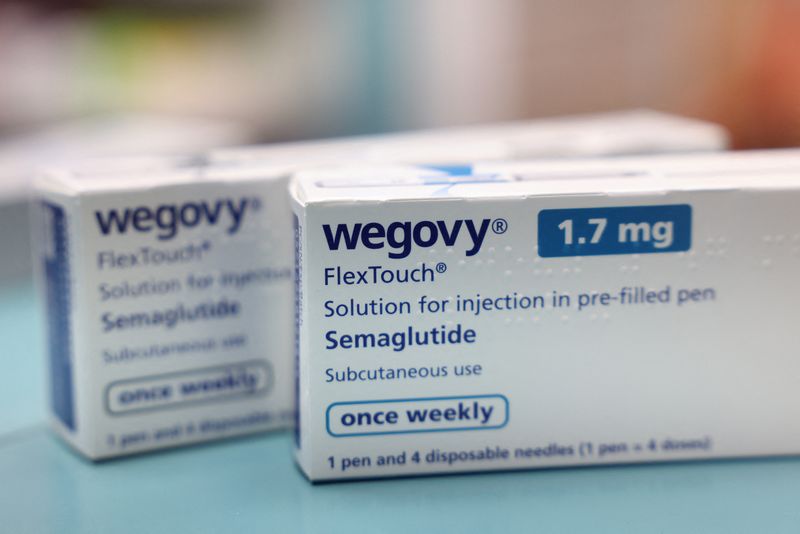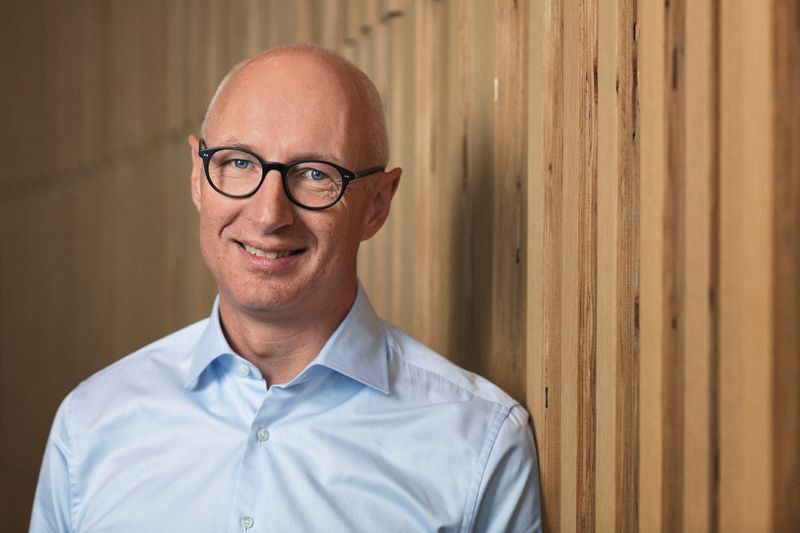By Patrick Wingrove and Maggie Fick
(Reuters) -Novo Nordisk's CEO on Friday said the company was working with authorities in several countries to tackle counterfeit versions of its popular diabetes drug Ozempic, as new reports emerge of patient harm across the world.
"This is something we take very seriously," Lars Fruergaard Jorgensen, CEO of the Danish drugmaker, told Reuters.
The company has been testing suspect products and collaborates with authorities in the countries where counterfeits are found to assist in legal cases, he said. "We cannot take action on our own."
Surging demand for Novo's drugs that promote weight loss, known chemically as semaglutide, far outpaces supply, increasingly giving rise to concerns about unregulated and counterfeit medicines.
Counterfeit Ozempic has been found in as many as 16 countries to date, according to the Partnership for Safe Medicines, an anti-counterfeiting group.
Reports obtained in the last week by Reuters via Freedom of Information Act (FOIA) requests show patients were harmed after taking fake Ozempic in Belgium, Iraq, Serbia and Switzerland last year.
While Ozempic is approved for diabetes, it has the same active ingredient as Novo's powerful weight-loss drug Wegovy and has been used off-label for weight loss.
The World Health Organization has said global shortages of these drugs is linked to rising reports of suspected counterfeits. Last week, U.S. FDA head Robert Califf said there were likely more cases of online sales of fake obesity drugs than reported.
The reports, made by Novo to the U.S. Food and Drug Administration, showed that people suffered dangerous drops in blood sugar, called hypoglycemia, after taking suspected or confirmed fake versions of the drug. They add to previous confirmed reports of such cases in countries including Austria, Britain, Lebanon and the U.S.
INSULIN SOLD AS OZEMPIC
A report filed with the FDA on a 45 year-old woman in Belgium stated that she suffered a seizure and ended up in a diabetic coma after taking suspected fake Ozempic to lose weight. Her doctor said she had injected at least 18 doses of pure insulin, almost five times the recommended dose for someone with diabetes, the report showed.
The incident appears in the FDA's public adverse events reporting database, but the details were obtained by Reuters.
In a separate report, Novo Nordisk (NYSE:NVO) wrote that it investigated a suspected fake injector pen in Iraq and concluded it was possibly an Apidra Solostar insulin pen from French drugmaker Sanofi (NASDAQ:SNY) that had been relabeled.
The drugmaker told Reuters separately that it had found a Semglee insulin pen in the U.S. last June, made by Indian drugmaker Biocon, that had a suspected counterfeit Ozempic label glued onto it.
Jorgensen said he had also heard of cases in which insulin pens were relabeled and repackaged as Wegovy, noting that it's easier to print a box than develop a fake injector pen.
COMPOUNDING
Jorgensen, echoing comments from the FDA's Califf, also said compounded semaglutide in the United States was a serious health issue, and that the raw materials, or active pharmaceutical ingredients (API), for these products were coming from unregulated facilities in Asia and elsewhere.
"We don't know them, and we have really no insights or ability to understand what the API is in a certain compounded product," he said.
While fake drugs often do not contain any of the medication advertised, compounded drugs are custom-made medicines that are based on the same ingredients as branded drugs. Because Wegovy and Ozempic are in short supply, they can be legally produced by licensed pharmacies in the U.S.
Further reports obtained by Reuters through FOIA requests show that one person died last year from abnormal blood clotting after taking a drug that was advertised as compounded semaglutide. Three others suffered severe vomiting and nausea, sensory loss in their legs, and a drop in blood platelet levels.

The doctor whose patient died reported that the event was possibly linked to use of compounded semaglutide.
The Alliance for Pharmacy Compounding, which represents compounding pharmacists and technicians, did not respond to a request for comment but has said drugs that are not made at state-licensed pharmacies are not compounded medicines.
